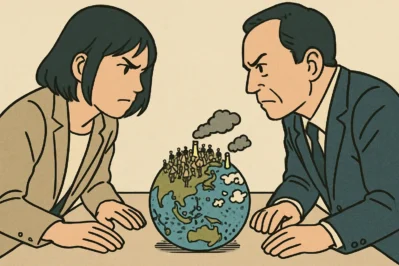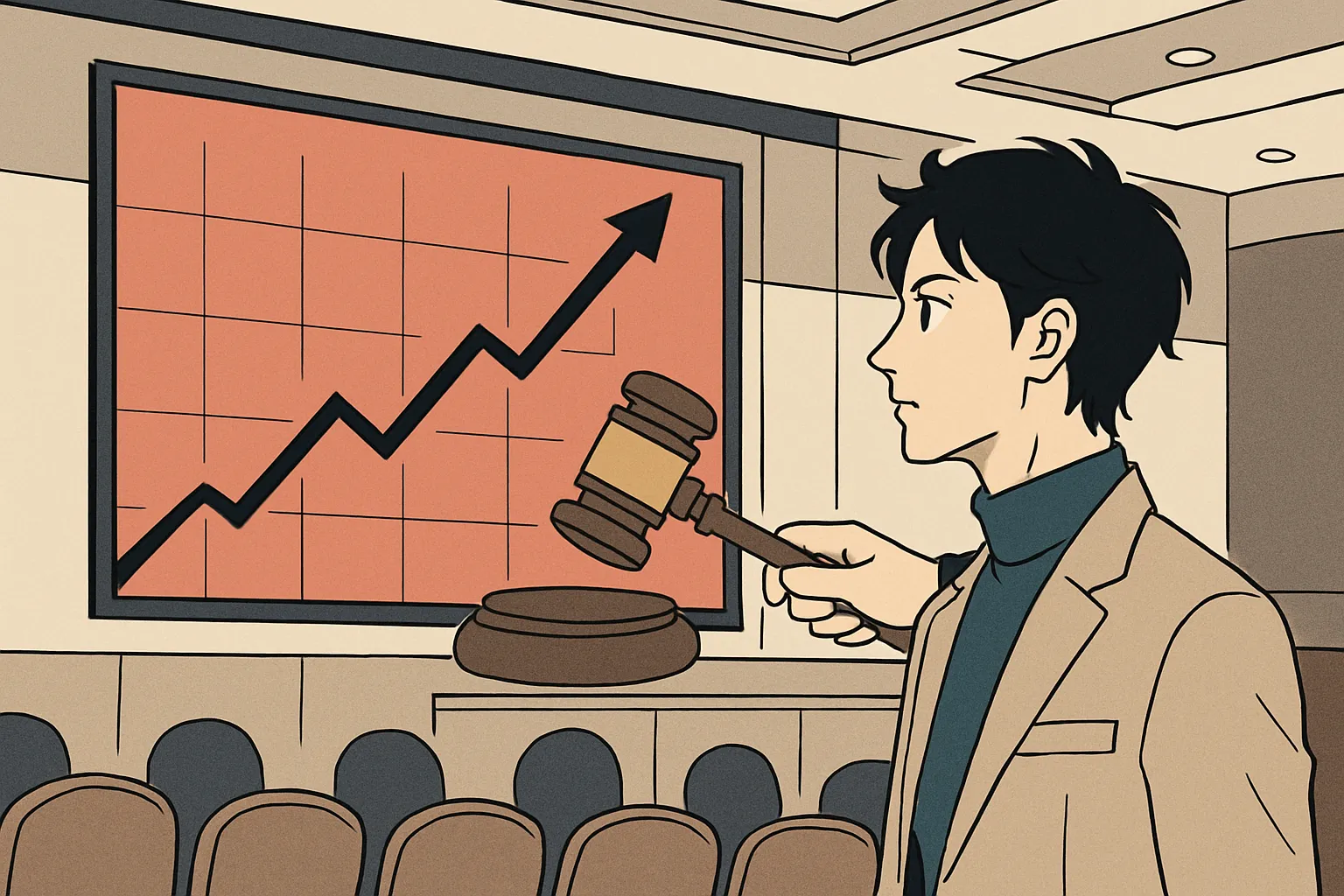Debate Climate Change in Korean Like a Pro!
Hello! This is [Maeil Hangeul], here to upgrade your Korean skills!
Have you ever wanted to join a deep conversation about important global issues in Korean? Today, we’re going to level up your discussion skills by tackling a serious topic: climate change, focusing on overpopulation and resource depletion. These are perfect for when you want to share your opinion in an online forum or have a thoughtful debate with Korean friends.
These days in Korea, environmental issues are a huge topic of conversation, especially among younger generations. You’ll see passionate debates in online communities about everything from plastic waste to carbon emissions. By learning today’s phrases, you’ll be able to confidently jump into these important discussions!
Let’s get started!
Core Expressions for Your Debate
Here are four powerful expressions that will make you sound like a thoughtful and fluent speaker in any serious discussion.
1. ~의 근본적인 원인은 ~에 있다 (The fundamental cause of ~ lies in ~)
- Pronunciation [Romanization]: ~ui geunbonjeog-in wonin-eun ~e itda
- English Meaning: The fundamental cause of ~ lies in ~ / The root cause of ~ is ~.
- Detailed Explanation: This is a fantastic, formal phrase for pinpointing the main reason for a problem. It’s perfect for starting an argument in a debate or an essay. 근본적인 원인 (geunbonjeog-in wonin) means “fundamental cause,” and ~에 있다 (e itda) literally means “exists in.”
2. ~(으)로 이어질 수밖에 없다 (It is bound to lead to ~)
- Pronunciation [Romanization]: ~(eu)ro ieojil subakke eopda
- English Meaning: It is bound to lead to ~ / It will inevitably result in ~.
- Detailed Explanation: This grammar pattern, ~(으)ㄹ 수밖에 없다 (eul subakke eopda), expresses that a certain outcome is inevitable or there is no other choice. When combined with ~로 이어지다 (ro ieojida), which means “to lead to,” it creates a powerful phrase for describing consequences.
3. ~라는 점을 간과해서는 안 된다 (We should not overlook the fact that ~)
- Pronunciation [Romanization]: ~raneun jeom-eul gan-gwahaeseoneun an doenda
- English Meaning: We should not overlook the fact that ~.
- Detailed Explanation: This is a sophisticated expression used to introduce a critical point that others might be missing. 간과하다 (gan-gwahada) means “to overlook” or “to neglect.” Using this shows you are thinking deeply about all sides of an issue.
4. 이에 대한 해결책을 시급히 마련해야 한다 (We must urgently prepare a solution for this)
- Pronunciation [Romanization]: Ie daehan haegyeolchaeg-eul sigeuphi maryeonhaeya handa
- English Meaning: We must urgently prepare a solution for this.
- Detailed Explanation: This is a strong call to action. It’s a formal and assertive phrase you’d often see in news articles or formal proposals. 시급히 (sigeuphi) means “urgently,” and 마련하다 (maryeonhada) means “to prepare” or “to arrange.”
Example Dialogue: Online Forum
Let’s see how these expressions work in a real online discussion about resource depletion.
- A (네티즌1): 저는 자원 고갈의 근본적인 원인은 인구 과잉에 있다고 생각해요. 사람이 너무 많아지니 자원 소비가 늘어날 수밖에 없죠.
(I think the fundamental cause of resource depletion lies in overpopulation. As the population grows, resource consumption naturally increases.) - B (네티즌2): 맞아요. 현재의 소비 패턴을 유지한다면 결국 심각한 위기로 이어질 수밖에 없어요.
(That’s right. If we maintain our current consumption patterns, it’s bound to lead to a serious crisis.) - A (네티즌1): 그리고 이 문제가 다음 세대의 생존과 직결된다는 점을 간과해서는 안 됩니다.
(And we should not overlook the fact that this issue is directly linked to the survival of the next generation.) - B (네티즌2): 동의합니다. 그래서 이에 대한 해결책을 시급히 마련해야 한다고 봅니다. 개인의 노력도 중요하지만 정부 차원의 정책이 필요해요.
(I agree. That’s why I believe we must urgently prepare a solution for this. Individual efforts are important, but we need government-level policies.)
Culture Tip & Trend Deep Dive
In Korea, the MZ generation (Millennials + Gen Z) is leading the charge on environmentalism. You’ll often see trending hashtags on Instagram like #제로웨이스트 (#zerowaste) and social media movements like the #용기내챌린지 (#Yonggi-nae Challenge), where people are encouraged to bring their own reusable containers (용기, yonggi) to shops.
When you participate in online forums on platforms like Naver Cafe, using the formal and logical expressions we learned today will show that you are a serious and well-informed participant. While casual language is common, using these phrases in a debate about social issues will earn you respect and help you make your point clearly and powerfully. You’ll sound just like a Korean news analyst!
Wrap-up & Practice!
Today we learned four excellent expressions to help you debate important topics like climate change in Korean. You can now state a cause, predict a consequence, add a critical viewpoint, and call for action!
Now, it’s your turn to practice!
- Fill in the blank:
무분별한 플라스틱 사용은 심각한 해양 오염으로 (________________).
(Reckless use of plastic will inevitably lead to serious ocean pollution.) -
Make a sentence:
Using ~의 근본적인 원인은 ~에 있다, what do you think is the root cause of air pollution (대기오염)?
Let us know your answers in the comments! Try using one of the expressions you learned today to share your own opinion on an environmental issue. We can’t wait to read your thoughts






